Official Pinotage Numbers Are Here
Official Pinotage Numbers Are Here
Brix = 25 (no adjustment required)
Starting pH = 3.91
Starting TA = .62
Added 1.5gm Tartaric Acid per liter
Final Number are pH = 3.50 & TA = 0.75
In conclusion, the final numbers are very good!! Looking forward to seeing how this vintage turns out!
#whydoesittakesolong?
Bring On The Bordeaux! – A Home Winemaking Experience (2)
So before we start going into how our wine is doing, we wanted to outline some winemaking terms. Here’s a mini wine vocabulary lesson.
Degrees Brix: Expresses the percentage of sugar by weight. This scale is on a Triple Scale Hydrometer. Measuring the Brix by using a hydrometer will help you determine the level of alcohol you wish to produce in your wine.
pH: This is the potential Hydrogen ion. The pH scale spans from 0, representing extreme acid, to 14, representing an extreme base or alkai. For winemaking purposes only the 0-7 scale is considered and wine should between 3-4. The more intense the wine acid is, (the lower the number) the less free sulfite is needed to afford proper protection and hence wine stability.
Total Acidity: This measurement refers to the amount of acid that is in your wine in grams/liter of percent of volume. Ideally, your TA should be between 0.65%-0.85% for white wine and 0.60%-0.80% for red wines. If the acid is too low your wine is susceptible to bacteria and spoilage. If it is too high your wine will taste too tart.
We took the must out of the cooler on 10/28 and waited for the must to heat up. Once the must started to heat up we took our measurements. The Brix were 25.5, TA was 5.985, and pH was 3.88. My pH is a little on the higher side. My TA is pretty good for a dry red and my Brix are at a great level to make a 12.5% alcohol per volume wine.
Some tips for taking your pH and TA measurements. I would suggest purchasing some type of all in one SO2, pH, and TA testing equipment. To test TA on your own can be very complicated and not very accurate. I would suggest looking into a Vinmetrica kit. They do all of the tests and it’s easy and accurate.
Also, try not to get distracted and mix up your solutions like I did. It took me 30 minutes to get the correct TA reading because I was mixing in the wrong solution. #airheadmove
Thanks again stopping by and checking out our winemaking process. The next post will concentrate on yeast, yeast nutrient, and other additives that help the wine during fermentation.
Cheers ~ CM & FJ






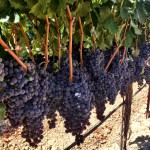
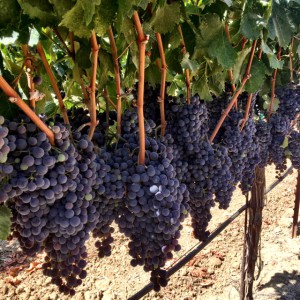


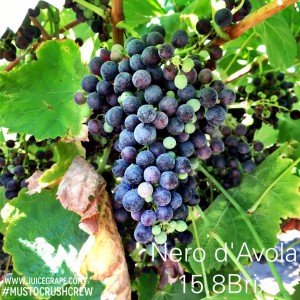
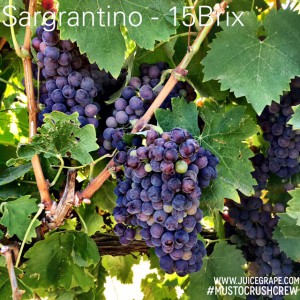

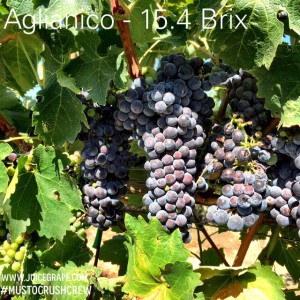

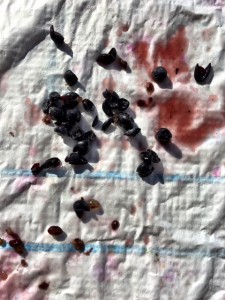
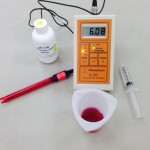
Recent Comments